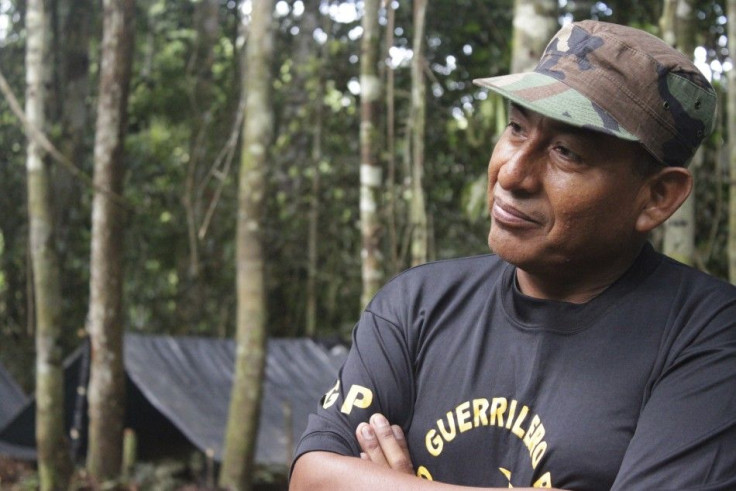Peru Cabinet Ministers Resign After Failing To Suppress Leftist Rebel Violence

On Thursday, Peru's defense and interior ministers announced their resignations on Thursday after facing criticism over their failure to fight leftist drug-trafficking rebels in the country.
Defense Minister Luis Alberto Otarola and Interior Minsiter Daniel Lozada came under heavy fire from legislators and civilians after a series of drug sweeps in a central Peruvian valley provoked violent retaliations from members of the Maoist Shining Path movement.
Over the last month, 10 police officers and soldiers have died in these operations.
The ministers' resignation is expected to deflect some public criticism away from Peruvian President Ollanta Humala.
Outrage over the violence was inflamed by two recent incidents. On April 30, a police officer who survived the rebels' attack finally reunited with his family after an odyssey in which he suffered multiple bullet wounds followed by a 17-day trek through the jungle. On May 3, the father of a murdered police officer embarked on a lone search through the jungle to locate and recover his son's body.
Lozada and Otarola have been criticized for failing to properly handle the sweeps, which were conducted in response to Shining Path rebels' April kidnapping of 36 construction workers. Those workers have since been released.
Shining Path is a decades-old movement. Despite recent violence, the group is nowhere near as large and powerful as it once was.
During the 1980s, Shining Path waged war against the Peruvian government under the leadership of a professor named Abimael Guzmán, who had formed the group as a political and philosophical Communist movement among rural peasantry in the late 1960s.
In efforts to overthrow the Peruvian government and install a Communist revolutionary command, the group waged a campaign of attacks, bombings and assassinations. The Council on Foreign Relations reports that the group started by targeting local politicians, and later moved on to higher-level authorities and wealthy civilians.
In organized ambushes, individual acts of violence and protracted battles with government forces, up to 70,000 Peruvians lost their lives during the group's heyday.
In 1992, Guzman was captured, tried and sentenced to life in prison. The judge held him responsible for over 20,000 deaths since 1980. Also sentenced on that day were 11 other leaders of the rebellion.
For the Shining Path rebels, these arrests marked the end of an era. Following a brief outburst of retaliatory violence after Guzman's incarceration, the movement changed shape.
Shining Path once eschewed the illegal drug trade in the interest of ethical purity. But as the dwindling organization went underground during the late 1990s and early 2000s, old philosophies morphed to fit new realities.
The group has re-emerged in recent years, and politics have taken a backseat to profitability. Authorities believe that narcotics and gun trafficking are financing the recent wave of violence.
The Valley of the Apurimac and Ene Rivers is now a central hub for Shining Path rebels. The lush valley, which lies midway between Lima and Cusco, is suitable for coca production and cocaine processing. Shining Path rebels have made it a lucrative center for narco-trafficking activities.
It was in this dangerous stronghold that 10 Peruvian security forces members lost their lives over the past month. Now, Otarola and Lozada hope their resignations will help unify Peruvians to fight the rebels more effectively.
Recent events have led me to take this decision so that our government and the people can unite behind our security forces, to give them the support they need to defeat narco-terrorism, Otarola said on Friday.
© Copyright IBTimes 2024. All rights reserved.






















